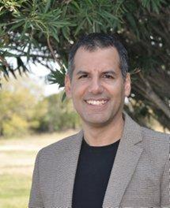 A picture of Dr. Medina A picture of Dr. Medina written by: Jenan El-Hifnawi and Michael Adu-Brew Academic institutions pride themselves on principled support for evidence-based solutions. This support, however, does not always seem to apply to institutional approaches to Diversity, Equity, and Inclusion (DEI) argues Dr. Raul Medina, a professor and member of the Diversity Science Research Cluster at Texas A&M. Dr. Medina’s scholarship in diversity uses two very different study systems. He explores the genetic diversity of insects as well as the impacts of oppression in diverse human communities. Medina encounters challenges while navigating the apparent conflict between natural science approaches and social science approaches - both with the imperative to uphold public trust in scientific discoveries. In the natural sciences there seems to be an assumption that the obvious approach to educating the public on a topic is to provide abundant information in a simplified way. Scientists expect that the more information the public is provided, the more informed they will be, and so consensus on solutions should naturally evolve. This educational approach is called the “Knowledge Deficit Model”, and social scientists have disproven its effectiveness when addressing complex issues (often referred to as wicked issues). Medina provides a fantastic example of how this model has failed: climate change. There is abundant evidence which proves that climate change is a real, man-made problem, yet this evidence does nothing to persuade the people who deny this linkage. The issue has become politicized and polarized, making people very reluctant to change their minds. If we strive to convince people that climate change is a real problem, we need to do so through engaging conversation and deliberation. Piling on more facts and data is ineffective.  E. G. Boring’s 'young girl/ mother-in-law' drawing (1942). Medina uses this optical illusion to demonstrate the ability for different people to draw different conclusions when provided with the same information. E. G. Boring’s 'young girl/ mother-in-law' drawing (1942). Medina uses this optical illusion to demonstrate the ability for different people to draw different conclusions when provided with the same information. The Knowledge Deficit Model is also ineffective at addressing DEI evidence-based problems and solutions. Many people are convinced by the abundant body of rigorous research that proves DEI issues are pervasive. However, many others are skeptical of this entire body of research, so providing more data is unlikely to change this staunchly held belief. Here lies the issue in academia’s approach to DEI. While evidence demonstrates that the Knowledge Deficit Model is ineffective, most academic solutions to DEI issues simply involve providing more information with a belief that this will create needed change through consensus. Medina argues the Academy needs to accept that providing more information alone will fail to create meaningful change. Instead, a major overhaul of the systems which perpetually marginalize members of historically underrepresented groups is needed. Dr. Medina demonstrated this point with a poignant example: Land Acknowledgements. The practice of land acknowledging is now common in academic settings. At UMD we are frequently reminded that “We are on the ancestral lands of the Piscataway People”. This routinization could be perceived as performative DEI, particularly when not a single Piscataway person is in the room. Medina suggests that we replace this acknowledgement with more tangible actions that directly serve indigenous people. For instance, reallocating even 1% of the university’s budget towards promoting enrollment of indigenous students, would be a more meaningful jester. This solution also highlights the obvious reason why universities continue to use the Knowledge Deficit Model when attempting to address issues surrounding marginalization; data backed solutions are often complex and require large resource investments. This may feel discouraging. If data-backed solutions are complex and require resources at levels within an institutional, what can individuals do? Communities need to work towards systemic change. While it’s impossible to include a blueprint to every complex solution in an hour-long talk, Medina did provide a couple of insights that may help lead to needed institutional change. First, he advocates for coalition building between communities of American racial minorities and people of color who immigrate to the US. As described in his paper “We Are Not All the Same: Protective Effects of Being Raised in Wakanda”, experiencing minoritization throughout your formative years has profound effects on one's self. For example, a Hispanic American in Maryland will likely experience racism throughout their entire life. An Hispanic immigrant raised in Latin America, alternatively, may have been raised in a community where they are not a racial minority therefore experiencing less racism during their formative years. The profound impacts of racism - especially during development - make this a very powerful difference. One manifestation of this is that immigrants are often more likely to be accepted in professional settings than American minorities. This is starkly apparent in Medina’s department at A&M; of the 30% hispanic faculty members, not one was born and raised in the US. Medina believes that these differences enable immigrants to be uniquely powerful allies. Finally, and gracefully, Dr. Medina encourages us to create discourse, not consensus. He insists that it’s normal to have unconscious thoughts which are racist, sexist, homophobic, etc. - we live in a society in which we frequently encounter these sentiments. Medina states that we all can think what we want to, as long as we don’t behave in ways which perpetuate these oppressive ideals. We must avoid shaming and labeling people, and instead label their specific problematic words and actions in order to facilitate tangible changes in behavior and prevent further polarization. Learn more about Dr. Raul Medina’s work through some of his relevant publications: Raul F Medina, Idia B Thurston, We Are Not All the Same: Protective Effects of Being Raised in Wakanda, American Entomologist, Volume 68, Issue 3, Fall 2022, Pages 10–11, https://doi.org/10.1093/ae/tmac054 David B. Resnik, Raul F. Medina, Fred Gould, George Church & Jennifer Kuzma (2022) Genes drive organisms and slippery slopes, Pathogens and Global Health, DOI: 10.1080/20477724.2022.2160895 Student Author Biographies: Jenan El-Hifnawi is a first-year Masters student in the Espíndola Lab. Her research seeks to explore the impacts of Ice Age glaciations on the diversification and range of several South Andean bee species using phylogeographic methods. Michael Adu-Brew is a Master’s student working in the Krishnan Lab. His research focuses on assessing the risk of pesticides on non-target insects, particularly monarch butterflies. Comments are closed.
|
Categories
All
Archives
June 2024
|
Department of Entomology
University of Maryland
4112 Plant Sciences Building
College Park, MD 20742-4454
USA
Telephone: 301.405.3911
Fax: 301.314.9290
University of Maryland
4112 Plant Sciences Building
College Park, MD 20742-4454
USA
Telephone: 301.405.3911
Fax: 301.314.9290

 RSS Feed
RSS Feed




